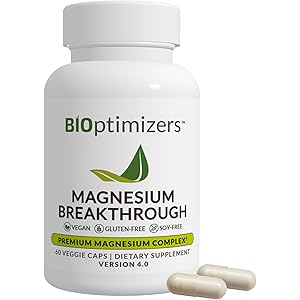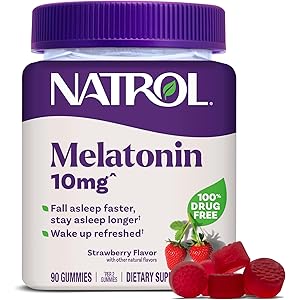BIOptimizers Magnesium Breakthrough Complex Supplement with 7 Forms of Mg: Glycinate, Malate, Citrate, and More - Natural Support for Sleep and Cognitive Function - 60 Capsules- Calming Vitamins
$39.95 (as of October 14, 2025 00:13 GMT +00:00 - More infoProduct prices and availability are accurate as of the date/time indicated and are subject to change. Any price and availability information displayed on [relevant Amazon Site(s), as applicable] at the time of purchase will apply to the purchase of this product.)What is Zinc?
Zinc is an essential trace mineral that plays a vital role in numerous biological functions within the human body. It is crucial for immune system performance, wound healing, DNA synthesis, and cell division. This mineral is found in various foods and is available as a dietary supplement, making it an important component of a balanced diet. Zinc deficiency can lead to a range of health issues, including impaired immune function and delayed wound healing.
Sources of Zinc
Zinc can be obtained from a variety of dietary sources. Rich sources include meat, shellfish, legumes, seeds, nuts, dairy products, and whole grains. Oysters are particularly high in zinc, containing more of this mineral per serving than any other food. For vegetarians and vegans, legumes and seeds can provide adequate amounts of zinc, although the bioavailability may be lower due to the presence of phytates in plant foods that inhibit zinc absorption.
Health Benefits of Zinc
Zinc is known for its numerous health benefits. It supports the immune system by aiding in the development and function of immune cells. Additionally, zinc plays a critical role in skin health, promoting healing and reducing inflammation. It is also involved in the synthesis of proteins and DNA, making it essential for growth and development during pregnancy, childhood, and adolescence. Furthermore, zinc has antioxidant properties that help protect cells from oxidative stress.
Zinc and Immune Function
One of the most significant roles of zinc is its contribution to immune function. It helps in the activation of T-lymphocytes, which are crucial for the adaptive immune response. Studies have shown that adequate zinc levels can reduce the duration and severity of respiratory infections. This mineral also plays a role in the production of antibodies, which are essential for fighting off pathogens and preventing illness.
Zinc Deficiency
Zinc deficiency can lead to a variety of health problems, including weakened immune response, hair loss, diarrhea, and delayed wound healing. Symptoms of deficiency may also include loss of appetite, taste abnormalities, and skin lesions. Certain populations, such as the elderly, pregnant women, and individuals with gastrointestinal diseases, are at a higher risk of zinc deficiency. It is important to recognize these symptoms and seek dietary adjustments or supplementation if necessary.
Recommended Daily Allowance (RDA) for Zinc
The Recommended Daily Allowance (RDA) for zinc varies by age, sex, and life stage. For adult men, the RDA is approximately 11 mg per day, while for adult women, it is around 8 mg per day. Pregnant and breastfeeding women have higher requirements, with recommendations of 11 mg and 12 mg per day, respectively. It is essential to meet these daily requirements to maintain optimal health and prevent deficiency-related issues.
Zinc Supplements
Zinc supplements are widely available and can be beneficial for individuals who may not get enough zinc from their diet. These supplements come in various forms, including zinc gluconate, zinc citrate, and zinc picolinate. It is important to choose a high-quality supplement and consult with a healthcare professional before starting any new supplementation regimen, as excessive zinc intake can lead to toxicity and adverse health effects.
Interactions with Other Nutrients
Zinc interacts with several other nutrients, which can affect its absorption and efficacy. For instance, high doses of calcium or iron can inhibit zinc absorption, while protein can enhance its bioavailability. Additionally, certain medications may interfere with zinc levels in the body. Therefore, it is crucial to maintain a balanced diet and be aware of potential interactions when considering zinc supplementation.
Zinc in Food Fortification
Food fortification with zinc is a strategy used to combat zinc deficiency, particularly in populations at risk. Many countries have implemented programs to add zinc to staple foods, such as flour and cereals, to improve public health outcomes. This approach has shown promise in reducing the prevalence of zinc deficiency and improving overall health, especially in developing regions where dietary intake may be insufficient.
Conclusion on Zinc’s Importance
Zinc is an indispensable mineral that supports various bodily functions, from immune health to wound healing. Ensuring adequate zinc intake through diet or supplementation is essential for maintaining overall health and preventing deficiency-related complications. As research continues to uncover the many roles of zinc in human health, it remains a key focus for nutritionists and health professionals alike.


